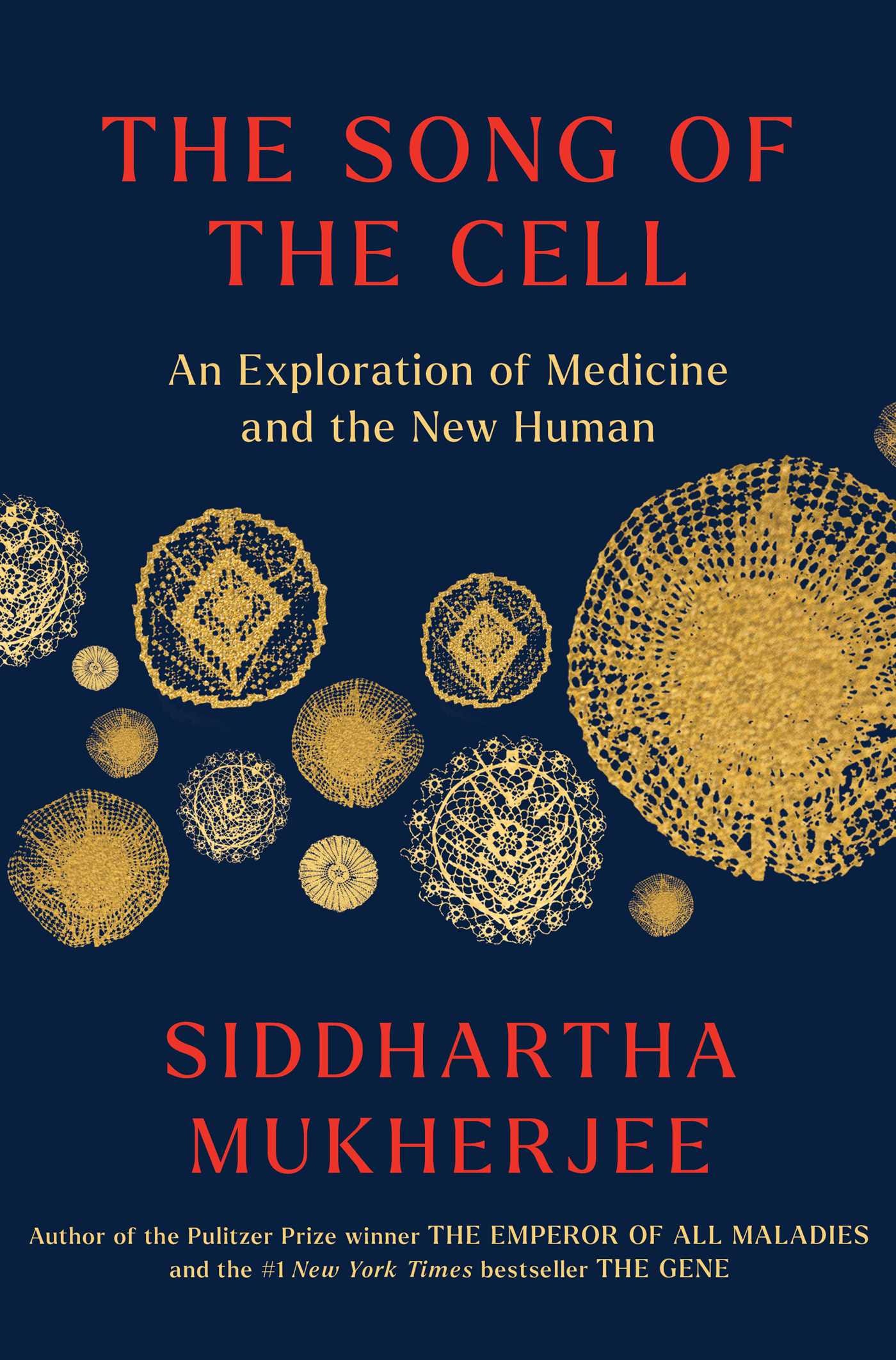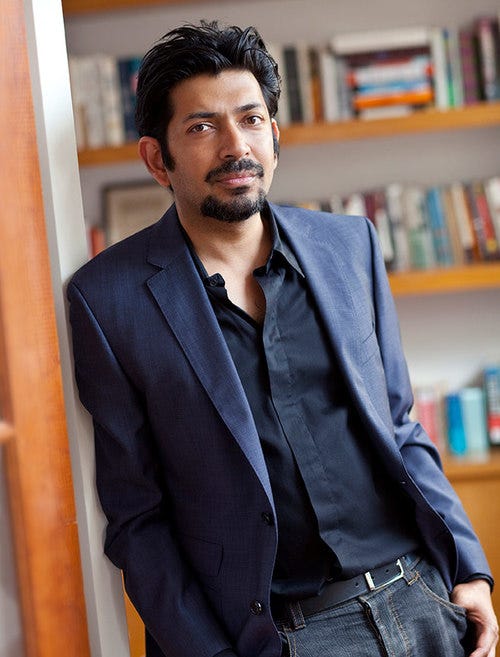

Discover more from Holodoxa
A Cellular Symphony: The Song of the Cell Reviewed
Renowned author and physician-scientist Siddhartha Mukherjee adds a third installment to his science history series, The Song of the Cell. It is mature pop-sci writing that deserves imitation.
What is a cell, anyway? In a narrow sense, a cell is an autonomous living unit that acts as a decoding machine for a gene. Genes provide instructions - code, if you will - to build proteins, the molecules that perform virtually all the work in a cell. Proteins enable biological reactions, coordinate signals within the cell, form its structural elements, and turn genes on and off to regulate a cell’s identity, metabolism, growth, and death. They are the central functionaries in biology; the molecular machines that enable life.
Cell biology or the study of the cell as the basic unit of life is a capacious and intimidating body of scholarship. This is because it encompasses a wide range of subdisciplines, including genetics, molecular biology, and developmental biology. In an even broader view, cell biology essentially includes all biology. Everything we consider alive is composed of cells (sorry viruses). It is too much for one lifetime, let alone one book. It is utterly impossible to wrangle all these disparate cavalries of biological scholarship under one banner. Yet, the ambitious and thoughtful doctor-writer Siddhartha Mukherjee, who previously graced us with The Emperor of All Maladies: A Biography of Cancer and The Gene: An Intimate History, has given it a try in his latest book.
The Song of the Cell by Siddhartha Mukherjee is one of the most highly anticipated non-fiction books of 2022. Mukherjee of Emperor of All Maladies success, is an assistant professor of hematology and oncology at Columbia University's Medical Center. He has also become an institution of sorts in science writing on biomedical topics. The phenomenon that was The Emperor of All Maladies is hard to understate. The 600 pager won the 2011 Pulitzer Prize for general non-fiction, was a massive bestseller, and earned a film adaptation that was done by Ken Burns. On top of this success, Mukherjee's curriculum vitae is generally astounding. It features MD/DPhil (the Oxford equivalent of a PhD) credentials, 50+ peer-reviewed research articles, a Rhodes Scholarship, and numerous other awards and accomplishments. It is unfathomable how Dr. Mukherjee keeps up with all his work on a day-to-day basis. This breakneck work-pace clearly weighs on him some as he often appears fatigued and mildly disheveled in interviews. I would too! Nonetheless he is always a model of lucid and intelligent science communication. I have really enjoyed both his prior books, which are respectively histories of cancer and genetics. The Song of the Cell completes the trilogy of sorts, presenting an idiosyncratic and special topics history of cellular biology. It also serves as viscera connecting his two prior books, backfilling gaps on topics slightly beyond their scope.

The Song of the Cell ambitiously recaps the foundations of the cellular life sciences. Mukherjee chooses the birth of microscopy as his starting point. The history of science is often a history of what questions technology enables curious people to ask - as Mukherjee says, "highbrow science was born from lowbrow tinkering" - but Mukherjee also makes a compelling case that the conceptual work of early cellular biologists was important to the field's advancement too. The unifying and bold idea Mukherjee identifies and also uses to organize his otherwise divided narrative is that cells are "the elementary particles of organisms." Two critical premises support this conceptual understanding of life. One, all living organisms are composed of one or more cells. Two, the cell is the basic unit of structure and organization in organisms. In other words, Mukherjee is saying "the life of an organism reposes in the life of a cell." Thus, the cell should be the central subject of the scientific study of life or when trying to sort out the cause of disease. He attributes these foundational concepts of cell biology to two German men, zoologist Theodor Schwann and Botanist Matthias Schleiden, who derived these concepts from their work and the work of first-mover microscopists, Antonie van Leeuwenhoek and Robert Hooke.
From this central idea, a sexpartite narrative of mini-histories spirals forth, touching on a wide range of topics: foundational discoveries in cell biology, cellular development and evolution, the blood as a complex cellular organ, the Covid-19 pandemic, major organ systems, and regenerative medicine. The prose is lucid and vivid, moving readers quickly through the 500 page book. Mukherjee relies on fewer extended metaphors and verbal flourishes relative to his prior books, but this is an improvement. The Gene specifically was a bit weighed down by Mukherjee’s prolixity. Unfortunately, The Song of the Cell’s disparate mini-histories don’t coalesce together well into a single entity (unlike the cells comprising organisms), and Mukherjee has to sacrifice some depth and complexity in a number of cases. It is just too much to expect the book to function both as effective science communication and narrative-driven science history at the same time for this topic. It feels like a patchwork assembly of related episodes, where some are more history or more science explainer or personal vignette. It is admittedly difficult to knit together cellular biology knowledge and its related history into a single book. There is also just too much content to cram into a single book without losing a lot of the audience. Overall, I respect the organizational and editorial choices made. Mukherjee is still able to hit a lot of important moments and only has to sacrifice some depth, especially on the history and human side of things. The drawback is the historical narratives are what added a lot of value to his other books versus just reading a textbook or review articles, especially for a reader with a background in science (like myself).
The Song of the Cell does not quite hit the same peaks or resonate the same way as his prior books. Those books were compelling structured and felt urgent and human. The Song of the Cell is an important but more perfunctory work. Judged against other popular science writing or even science history writing though, it looks like a great accomplishment. Mukherjee communicates complex science interlaced with historical narrative that deliver human interest and knowledge, and he manages this without oversimplification or glibness. He also shows discipline by not overhyping research findings or groundbreaking ideas. He is largely able to avoid many of the pitfalls of popular science writing. A lot of curious lay reader will really enjoy and benefit from reading The Song of the Cell.
Interviews with Author of The Song of the Cell:
Fresh Air - Siddhartha Mukherjee On A Revolution In Cell Biology
WSJ’s The Future of Everything - Siddhartha Mukherjee on the Future of Cellular Medicine
Subscribe to Holodoxa
A study of the total human condition. I examine ideas from science, literature, technology, politics, and more. Most posts will consist of book reviews or short essays.













